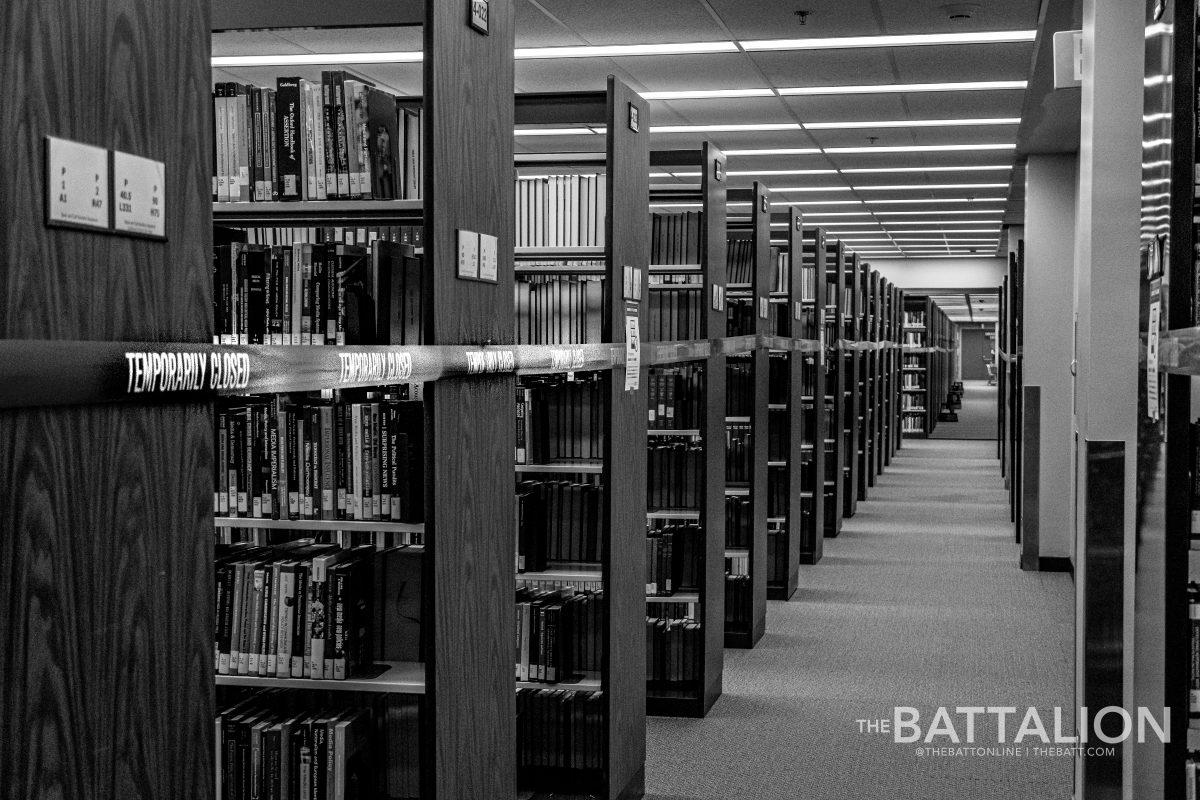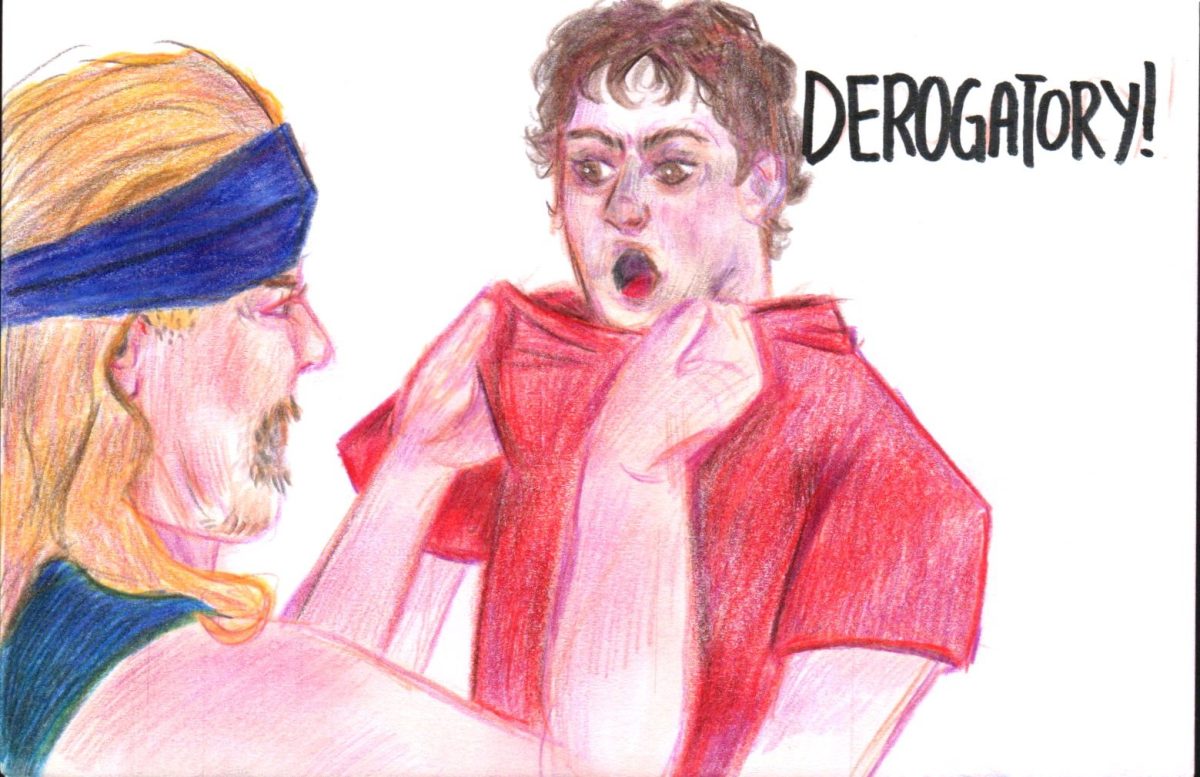A recent statement from the Texas A&M administration proclaims the university community is to embark on a new plan under the slogan, “The Path Forward.” Led by a team of outside management consultants, President M. Katherine Banks and her colleagues plan to reorganize all university facilities that have newly come under their control and boldly repurpose buildings and staff.
Over the past 40 years, we have heard this song many times before. We know from experience that on many levels the “Path Forward” is actually “The Path Backward,” repackaging many old and bad ideas that have been promoted on this campus since the 1980s, and earlier.
Promoting a single unified vision — “The Path” — is pure autocracy, harking back to past slogans demanding all members of the university conform to a single vision or viewpoint. This viewpoint is of course determined by the upper administration. On no account must there be any meaningful consultation or dialogue, only the formal semblance of one. Everything is top down. These dictatorial tendencies cannot help alienating people across the university community. “This is Your Destiny!” (Darth Vader, “Star Wars”) Who died and made you Darth Vader?
The use of the definite article — “THE” Path — abandons any attempt at diversity of thought. As far as this administration is concerned there is one path and one path only. This kind of “one-size-fits-all” plan is unrealistic and stinks of desperation. The language is psychologically counter-productive; it is also self-revelatory in a way that should be embarrassing.
The attempt to declare the University Libraries a “service department” recalls many past attempts to redefine other departments as ‘service departments.’ English, for instance, is recognized in every normal university as a valued intellectual discipline in its own right. At A&M, since the early 1980s, the Department of English has had to struggle for recognition as anything other than a service for teaching scientists and engineers to produce comprehensible English prose.
The rigidity of this administration reveals poor engineering practice, and its desire to put all of A&M’s eggs in one basket is not a good economic strategy. Excellent thinkers of past centuries have pointed out that many pathways lead to the same goal, and that it is better and much safer to have multiple options. In engineering, this is called “redundancy,” a key structural principle well explained in Levy and Salvadori’s classic, “Why Buildings Fall Down.” The “new” plan reflects an outdated and blinkered vision. STEM needs English, libraries and arts of all kinds, something for the soul, not just a generic “built environment.” Students and faculty need certain important kinds of physical places to study and function as learning communities — libraries being a fundamental type of “third place” outside of the classroom and dormitory that is essential to them. These places need specialized, professional staff in order to exist. Once we lose this, it will not be easy, and perhaps not even possible, to build it back.
The library is the heart of the university. It is an essential resource to both students and faculty. Any attack on a library is also an attempt to restrict access to information.
Our past experience with earlier ‘service department’ status proposals shows that:
No. 1, lowering the status of any component of the university and redefining it as a “service program” is of no intrinsic value other than providing basic services to their betters (since they should know that they are not the main event) leads infallibly to.
No. 2, outsourcing. Can’t it be handled online by commercially available software? Does it need its own buildings, physical materials or expensive human beings? Isn’t it taking up rather a large amount of space? Buy the software. Lose the “human resources.” Our own custodial staff knows how this works.
Excising vital organs or structural elements of a working organism or design because you do not understand their function has led to scientific enlightenment in the past, but it is a terrible way to learn. (Look at the history of the thyroidectomy.) Such experiments come at great cost to both the experimenter and the entity being experimented upon. They put everyone and everything involved at risk.
Language is an infallible index of human character; your language reveals what you are. The upper administration needs to be reminded that it is itself, essentially, a “service department.” The actual university consists of the students and the faculty, librarians included. The administration either serves their interests or creates obstacles by pursuing its own interests.
The leader who skips the persuasive element of leadership — rhetoric — not to mention listening to his or her people — taking wise counsel — to go directly to announcing and then imposing his or her plans — sometimes after a few cosmetic events staged in order to “hear from” affected members of the community — is not exercising prudence in the true sense of the word, and is riding for a fall. That person is missing critical parts without which they will not be able to function in the long term. Leaders need to be able to listen to people beyond their inner circle of ‘yes’ men and women, often hired at great expense and dependent on their funding. They need to be able to hear the voices of those they propose to lead, and not just march forward on their chosen path. Otherwise, they all too often find they are marching alone.
Another time, you would have done better to run this by your friendly local English department. The faculty could have told you something you will not learn from any management consulting team hired at great expense to the taxpayers of the state of Texas. That is, if you are educable.
Jennifer Wollock is a professor in the Department of English at Texas A&M.






















